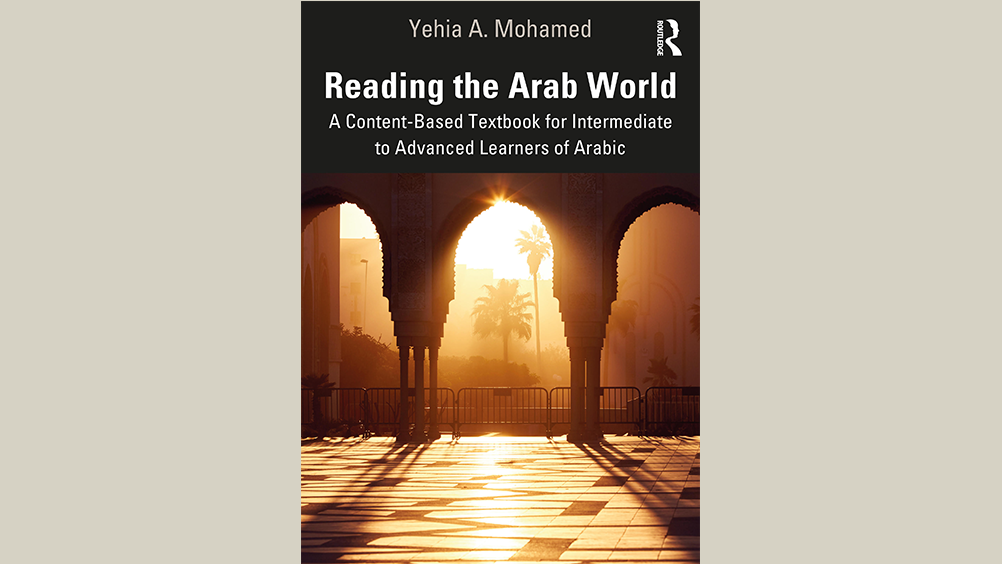New Arabic Textbook by Georgetown Professor Teaches Students How Arabic Works in the Real World

Dr. Yehia A. Mohamed, Associate Professor of Arabic at QF partner Georgetown University in Qatar (GU-Q), is the author of a new textbook titled Reading the Arab World (Routledge, 2021) that allows students to learn how the Arabic language works in the real world. The content-based textbook for intermediate to advanced students is divided into ten units over 378 pages and is designed to enhance language skills through exposure to authentic texts.
Recently released, this textbook is an ideal resource for students of Arabic as a second or heritage language working at or above the Intermediate-High level on the ACTFL proficiency scale. As it is particularly aimed at Advanced and Post-Advanced levels, it is well-suited for post-instructional language courses. Students will be able to continue developing their reading, writing, speaking, and critical thinking skills as they learn about contemporary issues shaping the Arab world through a range of authentic texts.
Dr. Mohamed said the inspiration to write this textbook came from his lesson planning for a GU-Q course he teaches titled “Topics in the Arab World.” For the course, he selects reading material on a diverse range of issues in the contemporary Arab world including politics, economics, thought, history, and culture, to expand and enhance student vocabulary and knowledge about the Arab world.
“Over the past decade, I have gathered and organized numerous audio, visual and written texts from various sources, which I have used to develop exercises and activities for this course, until I reached a point where I felt my accumulated body of work was sufficient to compile a book dealing with the issues of the contemporary Arab world,” he said.
Noting that most heritage Arabic learners at the university level are neither specialists nor sufficiently exposed to written texts on challenging contemporary issues, Dr. Mohamed hopes his textbook will fill these knowledge gaps with topics that cover a range of issues, including politics, religion, family, women, youth, the economy, development, culture, society, and thought.
In compiling the content for these topics, Dr. Mohamed worked to ensure the texts reflect the rich diversity of thought and worldview in the Arabic speaking world. “I have endeavored to include a diverse range of texts and materials that do not favor a particular ideology or school of thought, and from different regions and countries of the Arab world,” he said. Each text is supported by relevant tasks such as vocabulary exercises, comprehension activities, and discussion questions.
Prior to Reading the Arab World, Dr. Mohamed co-authored a book with University of Oxford research fellow Elisabeth Kendall titled “Diplomacy Arabic: An Essential Vocabulary” that offers Arabic language learners an essential guide for success in diplomatic communication and international affairs.
Dr. Yehia A. Mohamed is an Associate Professor of Arabic at GU-Q. He is a certified rater and tester from the American Council on the Teaching of Foreign Languages (ACTFL). He has published two books on the phonology of Arabic and Semitic languages. Dr. Mohamed also launched the Arabic Book Club at GU-Q to engage the intellectual community in Qatar.